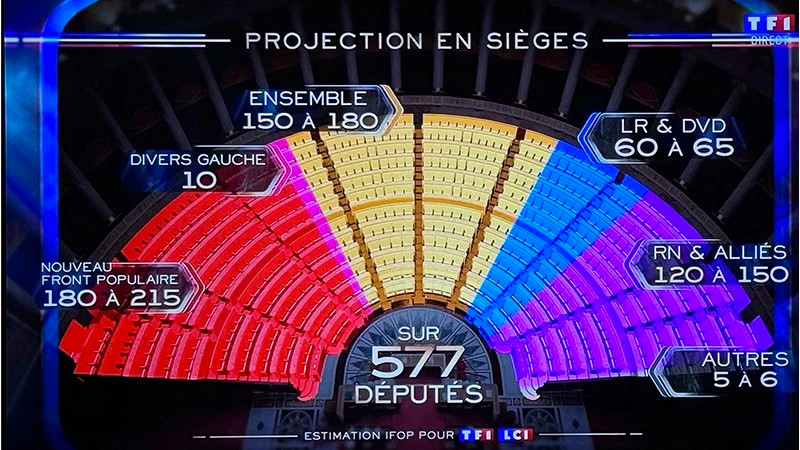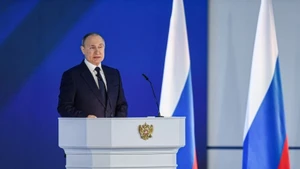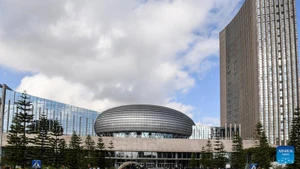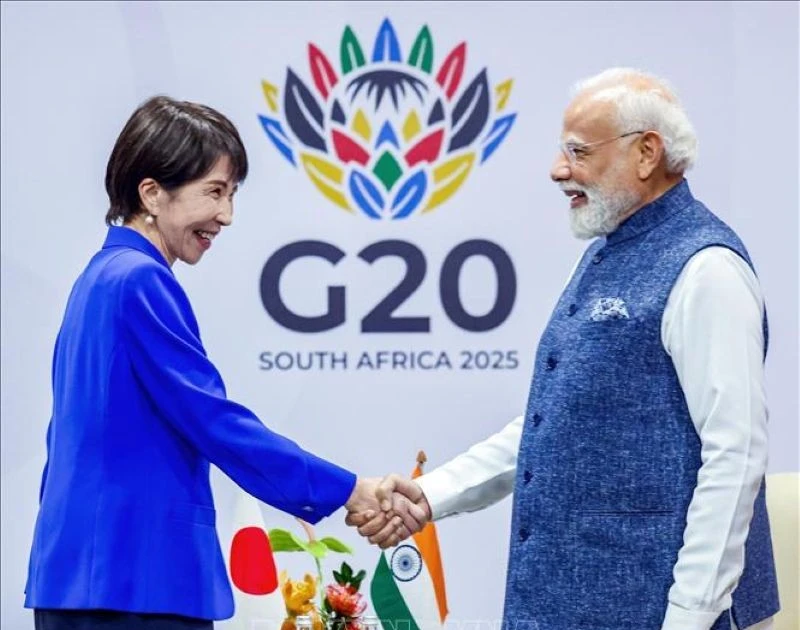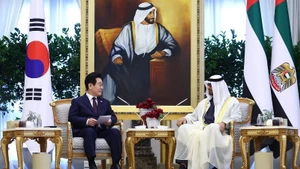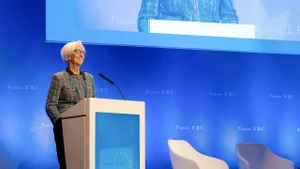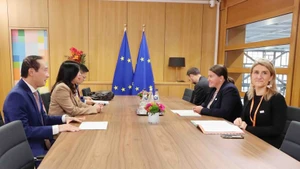This victory has made the NFP the largest political force, while the far-right faction no longer has a chance to take over the government. However, with three blocs having relatively equal legislature seats, the French political landscape reveals clear polarisation and many unpredictable elements.
Contrary to analysts' predictions and voter polls, the preliminary results of the second round of the French parliamentary elections show, that the NFP alliance leads with about 184-186 representatives, compared to the 149 seats of the outgoing parliament. Despite a strong performance in the first round, the RN and its allies only secured between 141 and 143 seats, ranking third. President Emmanuel Macron's "Ensemble" alliance is positioned between these forces, which lost its relative majority, obtaining only 160 to 162 representatives, compared to 254 seats in the previous term.
The unexpected defeat of the far-right faction indicates that the retreat strategy of the "Republican Front”, mainly comprising left-wing forces and President Macron's faction, has proven effective. The messages and voting instructions from these parties received positive responses from voters. Previously, the NFP withdrew 130 candidates and the "Ensemble" alliance withdrew 80 candidates from constituencies, where the far-right takes advantage, to create opportunities for other parties to gain more points. President Macron's centrist coalition collaborated with the left-wing alliance to prevent the far-right from gaining an absolute majority in the parliament. Despite the defeat, with the seats obtained, President Macron's alliance still benefits significantly from the Republican Front. The second-place position ensures that this faction remains indispensable in any political negotiations.
The NFP comprises the Communist Party, the hard-left France Unbowed, the Greens, and the Socialist Party. The core of NFP's action plan is to break with the old system within the first 15 days of taking power. To attract voters, the NFP has made numerous proposals. The first is the "social justice" projects, which include capping prices on essential goods such as food, energy, and fuel. Next is abolishing unemployment insurance and pension reforms, halting major infrastructure projects, rescuing public hospitals, and implementing free education.
After the first 15 days, the left-wing alliance will enter the second phase, which will be carried out over the next 100 days, focusing on major laws concerning purchasing power, health, education, ecological planning, and concentrating on renewable energy production. In the third and long-term phase, the NFP will push for the transition to the "sixth Republic" and re-industrialisation of France.
Meanwhile, the far-right faction presented a pragmatic and "populist" election campaign program. The RN also called for votes to block the President's faction and aim for an absolute majority in the new parliament.
Since no political force secured at least 289 seats to form an absolute majority in the new parliament, President Emmanuel Macron will not be forced to resign or choose a Prime Minister from the strongest majority faction, the NFP. Prime Minister Gabriel Attal has announced that he will submit his resignation to President Macron.
The left-wing alliance NFP achieved a "comeback" by winning over the far-right RN party. However, with the current polarised landscape, it is predicted that President Macron, the new parliament, and the new government in France will not easily work together. Many opinions suggest that France needs an agreement to ensure a stable government.
